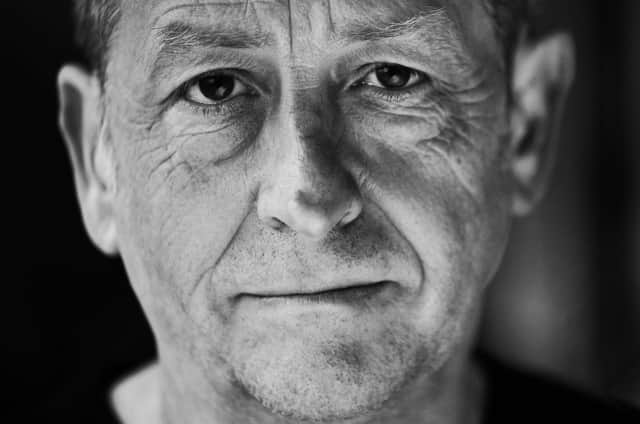Pinter and what those pauses mean.... on the Brighton stage


For four-time Olivier Award nominee Ian, who plays Sam, it will be his Pinter debut.
Has Pinter been a bit neglected generally since his death in 2008, does Ian think?
Advertisement
Hide AdAdvertisement
Hide Ad“There is a whole new generation of playwrights and Pinter is very very specific. Has he been sidelined since his death? I don’t know really but the reaction that we have been getting to this play has really been remarkable and the fact is it is a fantastic piece of work. This is my first Pinter and I’ve been doing this job for an awfully long time. I got my Equity card in 1974. Actually I did a two-minute very small sketch of an undiscovered Pinter at the Nottingham Playhouse a few years ago but this is my first full play and it is certainly interesting with the gender politics within the play. Maybe that is one of the reasons that he is not done quite so much these days because those gender politics are, shall we say, ambiguous.
“But the great thing about Pinter is that he never burdens you with the idea of what is going on with either the characters or with the play itself. You have to do that yourself. You suddenly start to peel away all sorts of layers in the script that you didn’t realise were there in the beginning and it is poetry just as Shakespeare is poetry.
“When you get the rhythms and the pauses right you can see that. People make a lot of the pauses in Pinter but they really do matter and there are three types of pauses in Pinter. You’ve got the three dots which is a break when someone is speaking and you’ve got the pause and you have got the silence. But the pauses and the silences are active. You know that there is something going on. They are never there arbitrarily. Keith Allen, who is in this play with me, knew Pinter quite well and what he says is that the pause is what the characters give you and the silence is what the play demands. The characters need to pause but when there is a silence it is because there is something shifting in the play. All that sounds very esoteric but when you get it right you can really feel the audience with you.”
In the play, Teddy, a professor in an American university, returns to his childhood home accompanied by his wife Ruth to find his father, uncle and brothers still living there. Life becomes a barely camouflaged battle for power and sexual supremacy. Who will emerge victorious?
Advertisement
Hide AdAdvertisement
Hide Ad“It’s a very classy piece of work. Every audience member has their own reaction. The other night after the show I walked past five or six groups of people outside along the road talking about the play and what they thought it was about, and that was great because I don’t think there is a right or a wrong answer.
“I know that I had very clear ideas about what the play was about but when I went into the rehearsal room and was talking with the other actors they found different things. They had a different take on it and I think that’s a measure of the classic that the play is.”
The play was written in the mid-60s: “And we have set it very much in its time. Gender politics have changed for the better, I would say, I would hope. There is a lot of male chauvinism and misogyny in the play but the woman comes out of it on her own terms. Whether you agree with how she deals with it or not is another matter. That’s up to you but at the time people were thinking it was Pinter’s way of saying that the woman’s right to choose is really the woman’s right to choose. And it’s very interesting to see people’s reactions in the context now of #metoo. I played a character for three years in Coronation Street who was a misogynist and an abuser and I am very well aware that our patriarchal society has got to change. And I think it is changing. And I do think it is accelerating.”
Have you read: Downton Abbey - those all important Sussex connections
Advertisement
Hide AdAdvertisement
Hide AdHave you read: Grace: why Roy Grace creator Peter James is so delighted with John Simm’s portrayal of his Brighton-based detective
Have you read: The Taxidermist's Daughter: This is the verdict of the arts critics of the national press
Have you read: Petworth Festival: This is when it is being held, here are the names of those appearing, and this is how to obtain tickets
Have you read: Hastings panto announced
Have you read: Exploring the great joys of the South Downs Way
Advertisement
Hide AdAdvertisement
Hide Ad